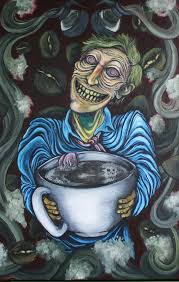Post-traumatic stress disorder (PTSD) is often spoken about as though it is a single, uniform condition. In reality, PTSD can look very different depending on the nature of the trauma, the length of exposure, and how the nervous system learned to survive. I believe this distinction matters. Just as food poisoning requires a different approach than the flu, various forms of PTSD call for thoughtful, individualized care. When you understand the type of PTSD you are experiencing, you gain clarity, self-compassion, and a clearer path toward healing.
For many gay men, trauma is layered. Alongside a specific traumatic event, there may also be experiences of rejection, internalized shame, concealment, discrimination, or chronic hypervigilance tied to identity and safety. These experiences shape how trauma is held in the body and the stories you may tell yourself about who you are. Trauma therapy is most effective when it honors both the event and the broader context in which it occurred.
Types of PTSD You Should Know
While all forms of PTSD may include symptoms such as nightmares, intrusive memories, emotional numbness, irritability, or hypervigilance, the underlying cause and timeline often differ. PTSD is commonly understood through the lens of symptom onset and duration. You may be experiencing one of the following:
Acute PTSD
Symptoms last fewer than three months and often follow a single, identifiable traumatic event, such as an assault, accident, or medical emergency.
Chronic PTSD
Symptoms persist beyond three months and are frequently associated with prolonged or repeated exposure to trauma.
Complex PTSD (C-PTSD)
This form develops after ongoing trauma, often beginning in childhood or within abusive, controlling, or emotionally unsafe relationships. Many gay men with C-PTSD report long-standing difficulties with self-worth, trust, emotional regulation, and identity.
Dissociative PTSD
In addition to core PTSD symptoms, this presentation includes depersonalization, derealization, or memory gaps. Dissociation often emerges as a protective response when escape or resistance was not possible.
Delayed-Onset PTSD
Symptoms appear six months or more after the traumatic experience. This can happen when survival required suppression or when life circumstances finally allow the nervous system to release what it has been holding.
A Thoughtful, Trauma-Informed Approach to Healing
Once PTSD is identified, the work shifts toward restoring safety, emotional regulation, and a sense of agency. From a narrative therapy perspective, I help you examine the stories trauma has written about you and gently separate your identity from what happened to you. Through cognitive behavioral therapy, we work to identify and challenge trauma-driven beliefs such as self-blame, helplessness, or constant danger. Positive psychology allows us to reconnect with strengths, resilience, and meaning that trauma may have obscured. Mindfulness helps retrain the nervous system to experience the present moment with greater steadiness and choice.
Trauma-informed therapy may also include evidence-based approaches such as EMDR (Eye Movement Desensitization and Reprocessing), cognitive processing therapy, and somatic techniques. These methods address both the emotional and physiological imprints of trauma, supporting integration rather than avoidance.
You Do Not Have to Carry This Alone
If you are a gay man living with trauma-related symptoms and are ready to move beyond survival into genuine healing, I am here to help. I provide PTSD treatment that is affirming, individualized, and grounded in compassion. Together, we can work toward restoring safety, self-trust, and a fuller connection to yourself and your life.
I invite you to schedule a session today and take the next step toward trauma therapy designed for real and lasting healing.




